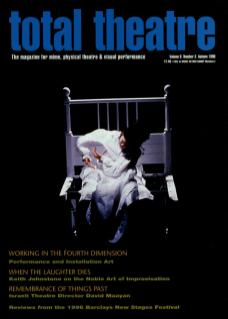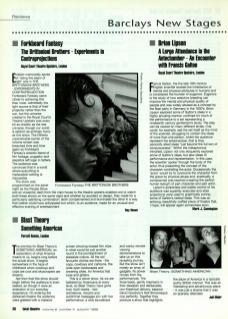Francis Galton, the late 19th Century English scientist, studied the inheritance of mental and physical attributes in humans and is considered the founder of eugenics. Eugenics is the study of how selective breeding can improve the mental and physical quality of people and was widely abused as a concept by the Nazi party in Germany in the 1930s. Brian Lipson explored some of Galton's ideas in a highly amusing manner, confined for much of the performance to a set representing a nineteenth century gentleman's study. The play can be viewed on many different levels. One could, for example, see the set itself as the mind of the scientist, struggling to contain the ideas of more than one person, whilst the audience represent the antechamber, that is they personify allied ideas ‘just beyond the full ken of consciousness’. Within the metaphorical mind/set, Lipson not only eloquently explored some of Galton's ideas, but also ideas of performance and representation. In this case, the scientist 'spoke' through the body of the actor, thus presenting the concept of the character controlling the actor. Occasionally the 'actor' would try to overcome the character from the grave by physical abuse and, eventually, a compromise was reached (creating the perfect human being?) of part character and part actor.
Lipson's awareness and subtle control of his audience was superbly executed and slide projections were used to graphically portray some of Galton's radical ideas. This was an enticing, beautifully crafted piece of theatre that, I hope, will appear again somewhere soon.

